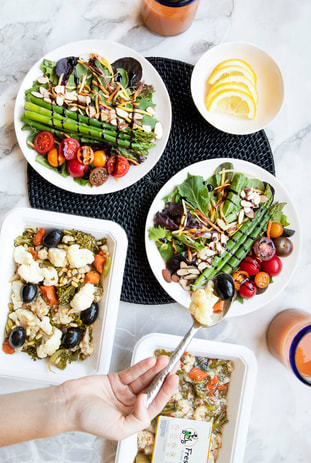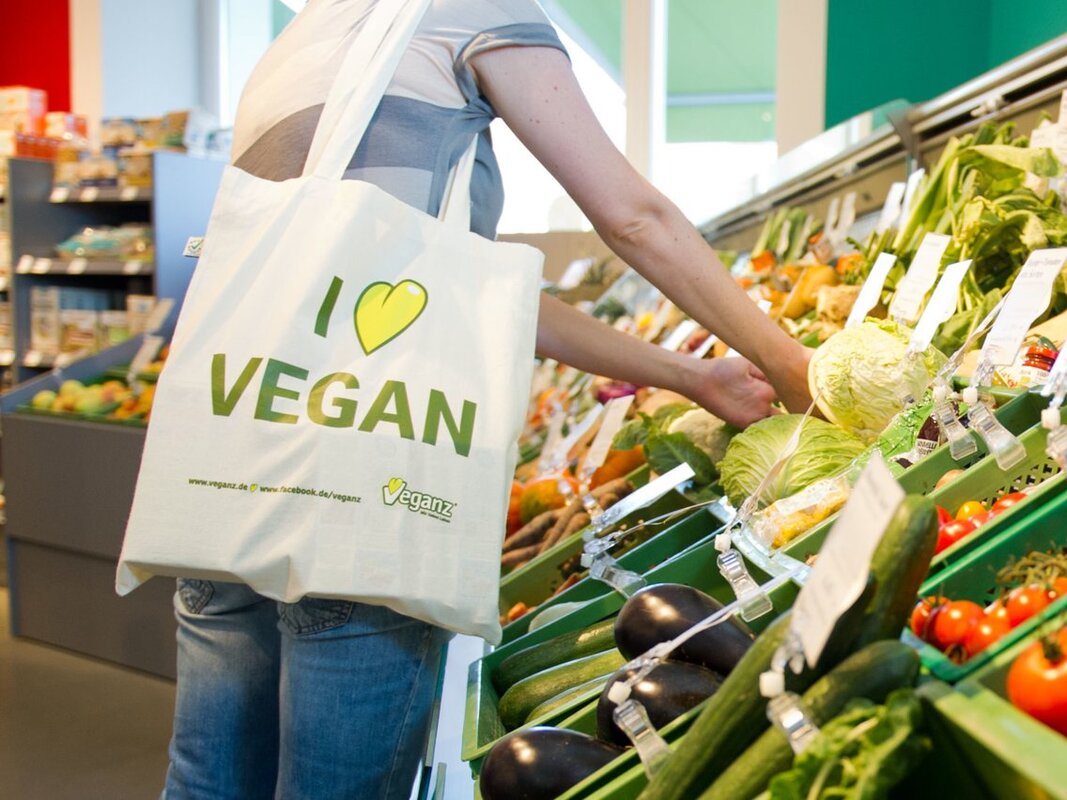 Plants Sometimes Don’t Grant All Your Nutrient Needs Plants Sometimes Don’t Grant All Your Nutrient Needs January is fast approaching which means each of us are ready with our New Year goals. The latest craze besides losing weight or exercising is to embark on a vegetarian or a vegan diet. This might be an inspiration from your favourite celebrity or an inner enlightenment and many of you would be feverishly hoping that this switch over is rewarding and smooth. Becoming a vegan is advantageous to your health, benefits the environment and sounds ethical too from the perspective of many individuals and, according to a research from the University of Oxford going vegan is the single best way to reduce your impact on the planet. But doing something new and different evokes displeasure and anger-veganism is no exception. Though this might not be looked upon with as much contempt and hostility as shown to racism, sexism or likewise vegans are found to be annoying, preachy, unsettling and hypocritical. Another reason why many people loathe vegans is because these group of milk- and meat-haters are the perfect examples of how confused some people are about food choices and how illogical decisions might evolve out of this confusion. Vegetarianism has its roots in our country but veganism is a new concept that’s surprised everyone in the world, almost becoming some kind of a diet fad but one that’s here to last forever. We are familiar with the concept of vegetarianism that includes avoiding animal-based food and the individuals consume milk and milk-derived products. Veganism means avoiding animal-based foods, milk, milk products, honey, eggs and anything else that’s obtained from animals. Hmmmmm…There is so much to compromise and so much to lose when you plan to go about a new route in life! But most people pursue a vegan diet for health-related benefits-helps primarily in avoiding saturated fats present in animal products and dairy and reduces risk of cholesterol, obesity, type 2 diabetes and hypertension. You are promised a lower BMI, lower LDL levels and overall better health when you choose to consume a diet rich in dietary fibre, antioxidants, folate and phytochemicals by eating fruits, vegetables, whole grains, nuts and beans. Studies also show that a vegan diet reduces risk of heart disease (probably due to decreased red meat consumption) and lowers risk of diabetes and even cancer but what about studies that show that vegetarians/vegans might also become victims of certain nutrient deficiencies due to avoidance of all animal-based products? Though the British Dietetic Association agrees that a well-planned plant-based diet can be healthy at every stage it is necessary to understand the important glitches and come up with reliable solutions (https://www.forbes.com/sites/sophiemedlin/2019/09/19/do-vegans-need-supplements-how-to-thrive-on-a-plant-based-diet/#726b8a7b3751). We are more bothered about what can be removed from our diet to incorporate a goal and the focus is least on what should be included in higher proportions for better health. While it is not impossible to attain optimal nutrition from a plant-based diet there are a few key nutrients that are hard to procure on a plant-based diet and even harder to come up with the right intake of supplements for the lacking nutrients. Common Nutrients that Remain Insufficient in Most Vegans Vitamin B12: Besides vitamin D, vitamin B has become one of the common nutrients that’s been lacking in most individuals these days. A nutrient that’s essential for brain function and an effective nervous system it’s the most-common nutrient that’s lacking among vegans as there are zero sources of naturally occurring B vitamin from plants. Ironically, the deficiency is not found any soon as the body has a support system on its own to manage vitamin B levels up to 6 months only after which symptoms such as fatigue, constipation, restlessness, weight loss and lack of desire to eat arise. This nutrient is present in abundant in nutritional yeast, fortified ready-to-eat cereals, soy milk, eggs, dairy and fish. Hence, vegans do need to take supplements regularly if they don’t consume other sources of this valuable vitamin after consulting with their doctor. Protein: Don’t be surprised as we all do know that plant-based protein sources are available but what individuals lack would be to get enough amino acids. Pulses, lentils, legumes, nuts and seeds are good vegan sources but missing out on their intake can lead to serious protein deficiency when an individual doesn’t eat eggs, meat and dairy too. The essential fatty acids required for brain health are concentrated in eggs, meat and dairy and hence, vegans must take algae supplements to compensate for it. Calcium: Individuals on a plant-based diet are at a higher risk of fractures and lost bone health as calcium is most-concentrated in milk and milk-based foods such as cheese and paneer. Besides dairy there are other sources (kale, turnip, broccoli and bok choy) but the problem is that these are not well absorbed by the body and can lead to deficiency. Calcium supplements is recommended for all vegans, especially pregnant women and children. Iron: This nutrient can be obtained from two sources-heme (animal-based foods) and non-heme (plant-based foods) iron and its absorption levels depend on the source from which the nutrient is procured. So, despite the presence of ample plant-based sources of iron our body is less able to absorb it leaving the individual feeling tired, weak and fatigued. One solution is to combine your iron-rich plant-based foods with vitamin C-rich diets to maximize absorption. For instance, drink a glass of freshly squeezed orange juice along with iron-fortified breakfast cereal. Vitamin D: This is a nutrient that’s commonly lacking in a majority of individuals, especially vegans as it is not present in any of the vegan diets. Sunshine is the primary source of vitamin D besides which there are only a few food sources, primarily animal sources, such as cheese, eggs, tuna and milk that supplement our needs. Zinc: Zinc is limited in plant-based foods and even when consumed its absorption is also restricted. Vegans can choose from fermented soya, whole grains and nuts while fortified cereals, cashews, yogurt, pumpkin seeds and chickpeas are also good sources. Iodine: this nutrient is needed for making thyroxine, a thyroid hormone required for normal growth. Its main sources are dairy, eggs and fish and vegans are at a definite risk of deficiency. While plants grown in iodine-enriched soil are proposed to be good sources the information is unreliable (https://www.forbes.com/sites/sophiemedlin/2019/09/19/do-vegans-need-supplements-how-to-thrive-on-a-plant-based-diet/#49dfade13751). It is better to take supplements to fulfil the needs. A vegan diet has been proposed for weight loss but one needs to keep in mind that many of them can overconsume biscuits, cakes, chips and beer while reducing consumption of fruits and vegetables. Many are very thin and this can be disadvantageous in old age; they are at a 30% increased risk of bone fracture due to lower bone density (https://www.theguardian.com/lifeandstyle/2019/dec/18/doctors-warn-vegans-to-take-risks-of-vitamin-b12-deficiency-seriously) and at a lower risk of type 2 diabetes and diverticular disease of the colon. Substitute rightly, eat the specified quantities and enjoy what you eat. Some nutrients do need supplements and please don’t choose one on your own. Get in touch with a nutritionist or health expert before choosing supplements and it’s even better to get their opinion before turning into a vegan. Meet them once a while to review your health and to ensure that you are getting a good supply of all the nutrients required for a healthy body. References The Four Nutrients Vegans are Most Likely to Miss: https://www.smh.com.au/lifestyle/health-and-wellness/the-four-nutrients-vegans-are-most-likely-to-miss-20190501-p51izq.html Not Getting Essential Nutrients in a Vegan Diet? Food Hacks to be Kept in Mind: https://economictimes.indiatimes.com/magazines/panache/not-getting-essential-nutrients-in-a-vegan-diet-food-hacks-to-be-kept-in-mind/articleshow/62898341.cms Deficiencies Veganism can Lead to & Ways to Deal with Them: https://www.outlookindia.com/magazine/story/society-news-beware-the-losses/301076 The 14 Things You Need to Know Before You Go Vegan: https://www.theguardian.com/lifeandstyle/2019/jun/19/the-14-things-you-need-to-know-before-you-go-vegan Comments are closed.
|
AVOID FRAUD. EAT SMART.+91 7846 800 800
AuthorDietitian & Nutritionist Dr. Nafeesa Imteyaz. Archives
July 2024
Categories
All
Dr. Nafeesa's Blog @blogspot |
- Home
- Written Testimonials
- Consult
- Clinics
- Blogs
-
Diet & Nutrition
- Diabetes Reversal
- IVF IUI not needed for PCOS PCOD Infertility
-
Medical Nutrition
>
-
Disease & Conditions
>
- Infertility | PCOS
- Diabetes Mellitus
- Cholesterol
- Hypothyroid
- Kidney Problems
- Hypertension
- Cardiovascular Diseases
- Liver Diseases
- Gastro intestinal disorder
- Cancer
- Metabolic Disorders
- Orthopedic Disorders
- Eating Disorders
- Dietary Recall
- Weight Record Filled By Clients
- Online Payment Transaction Details
- Online Clients Weight Check Form
- Our Program Package Service Charges
- Weight Record 2017 Clients
- Measurements sent by Clients
- Terms & Conditions Of Payment
- Thanks. Your Form is Submitted
- Video Testimonials
- Lifestyle & Wellness
- Lifestyle & Wellness Blog
- Allergy & Intolerance
- Weight Loss / Gain
- Weight Loss / Slimming Blog
-
Disease & Conditions
>
- Life Cycle Nutrition >
- Sports Nutrition >
- Integrity in Nutrition
- Knowledge Centre
© COPYRIGHT 2022. ALL RIGHTS RESERVED. FRST HEALTHCARE PVT LTD.
Dr. Nafeesa Imteyaz of First Eat Right clinic, is the Best Dietitian Nutritionist in Bangalore. Best Dietitian Nutritionist in Pune. Best Dietitian Nutritionist in Hyderabad. Best Dietitian Nutritionist in Chennai. Best Dietitian Nutritionist in Mumbai. Best Dietitian Nutritionist in Delhi. Best Dietitian Nutritionist in Kolkata.


